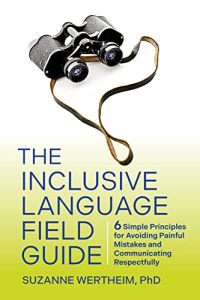
The Inclusive Language Field Guide
6 Simple Principles for Avoiding Painful Mistakes and Communicating Respectfully
Recommendation
Today’s language etiquette includes words and phrases that might seem strange or awkward. Dismissing these changes as political correctness gone mad is easy, but language continually evolves to reflect changing attitudes. Words that you find innocuous can offend others. To forge connections and facilitate trust, consider the needs, feelings and preferences of those who have been marginalized in the past. Embrace linguistic anthropologist Suzanne Wertheim’s six principles of inclusive language to better understand the dynamics of communication and avoid hurting others with your words.
Summary
About the Author
Linguistic anthropologist Suzanne Wertheim is CEO of Worthwhile Research & Consulting. She has taught at Northwestern University, the University of Maryland and UCLA.














Comment on this summary